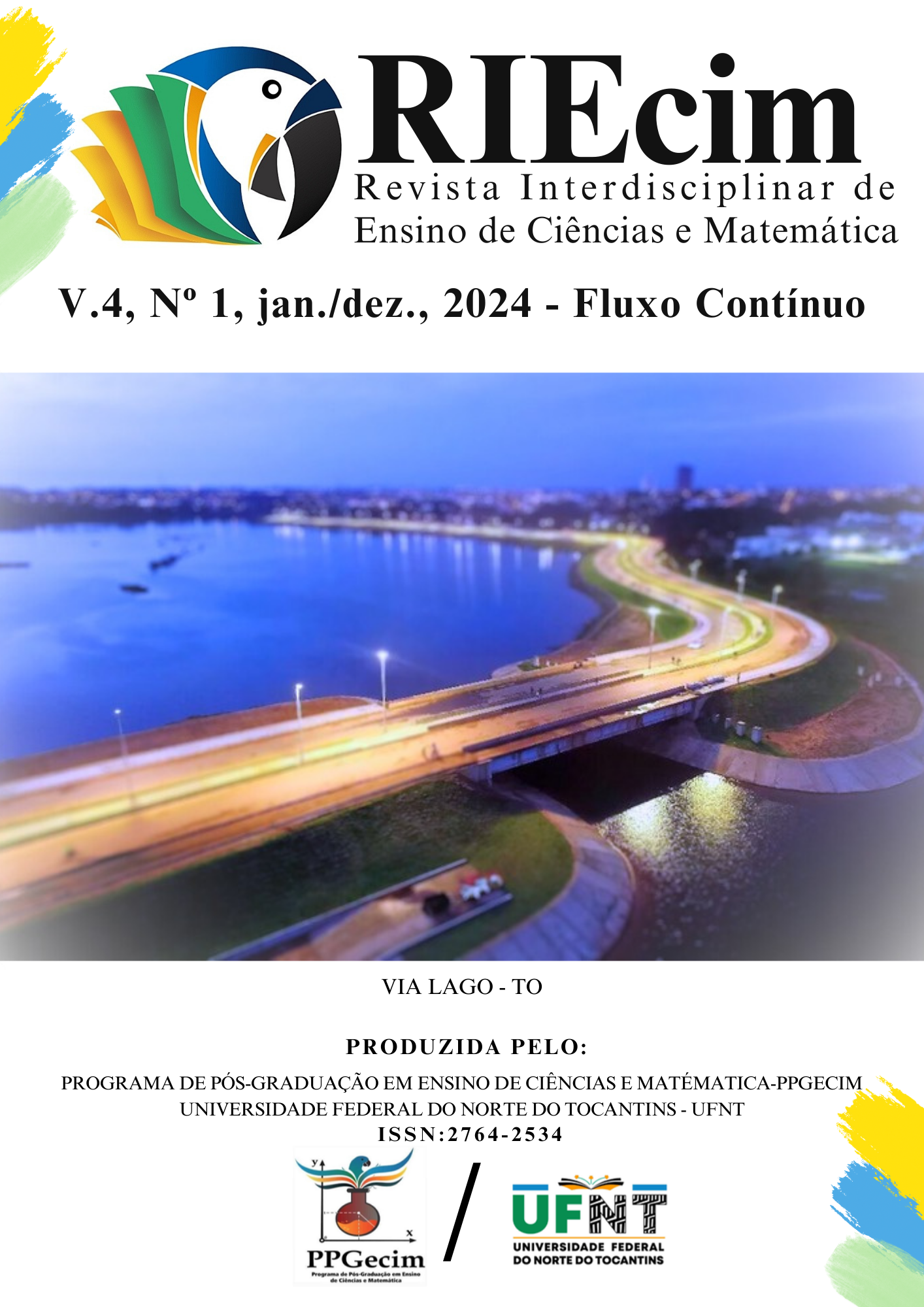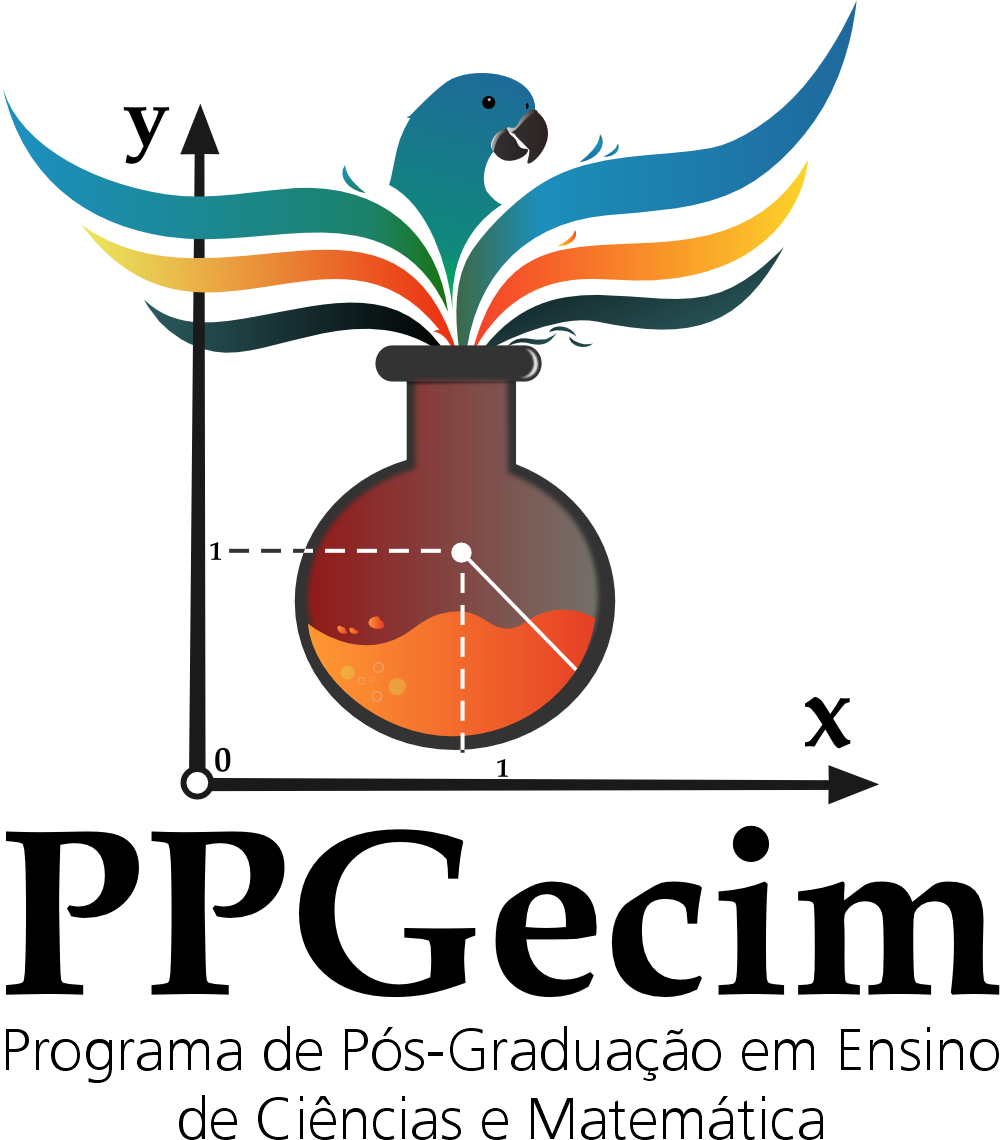TEACHING SCIENCE AND MATHEMATICS: PROBLEMATIZING PEDAGOGICAL PRACTICES DEVELOPED IN TRAINING CONTEXT
Keywords:
Ensino de Ciências, Ensino de Matemática, . Formação Docente, Práticas DocentesAbstract
This text presents the report of an experience developed in the context of teacher training actions during the offering of the subjects of Science Teaching and Mathematics Teaching, in the Specialization Course in Knowledge and Pedagogical Practices in Elementary Education, at the Center for Education, Letters and Arts, from the Federal University of Acre. The training actions we refer to were characterized as a set of activities, developed in five meetings, totaling 15 hours. The meetings were planned to address content, based on consideration of the Thematic Units, the Areas of Natural Sciences and Mathematics, which are part of the National Common Curricular Base (2017). In this context, it is noteworthy that the topics covered were the following: nutrition, regional productive activities, floods, trash and butterflies. They emerged, from the teaching and learning processes, in the moments of content approach and, in the same way, from the interactions established between the different actors who participated in the activities, in addition to the elements that comprise scientific concepts, epistemological aspects, which theoretically place them in the educational context and allow us to reflect on our practices and their results, namely: ethnomathematics, mathematical modeling, scientific education, scientific and mathematical literacy, interculturality and interdisciplinarity.
References
BRASIL. Lei n.º 9394/96. Lei de diretrizes e bases da educação
Nacional: Estabelece as diretrizes e bases da educação nacional. Brasília: 1996. Disponível em: https://www.planalto.gov.br/ccivil_03/Leis/L9394.htm. Acesso em: 15 set. 2023.
BRASIL. Base nacional comum curricular. Brasília. MEC, versão 3. Brasília, Governo Federal, 2017. Disponível em:
Base Nacional Comum Curricular - Educação é a Base (mec.gov.br). Acesso em: 15 set. 2023.
BRASIL. Parâmetros curriculares nacionais para o ensino médio, Ministério da Educação, Secretaria de Educação Média e Tecnológica, Brasília, 1997. Disponível em: Parâmetros Curriculares Nacionais 5ª a 8ª Séries - Ministério da Educação (mec.gov.br). Acesso em: 15 set. 2023.
DALTRO, Mônica Ramos; FARIA, Anna Amélia de. Relato de experiência: uma narrativa científica na pós-modernidade. Estudos e pesquisas em psicologia. v.19. n.1, 2019, p. 223-237. Disponível em: http://pepsic.bvsalud.org/scielo.php?script=sci_arttext&pid=S1808-42812019000100013. Acesso em: 20 out. 2023.
FAZENDA, Ivani Catarina Arantes (Org.). O que é interdisciplinaridade? 2.ed. São Paulo: Cortez, 2018.
FAZENDA, Ivani Catarina Arantes (Org.). Interdisciplinaridade: pensar, pesquisar, intervir. São Paulo: Cortez, 2016.
FAZENDA, Ivani Catarina Arantes. Interdisciplinaridade: história, teoria e pesquisa. 9. reimp. São Paulo: Papirus, 2021.
FREIRE, Paulo. Pedagogia da autonomia: saberes necessários à prática educativa. São Paulo: Paz e Terra, 1996.
GIROUX, Henry. Os professores como intelectuais: rumo a uma pedagogia crítica da aprendizagem. Tradução de Daniel Bueno. Porto Alegre: Artes Médicas, 1997.
KRASILCHIK, Miriam. Reformas e realidade: o caso do ensino das ciências. São Paulo: Perspectiva, São Paulo, v. 14, p. 85-93, Mar. 2000.
MINAYO, Maria Cecília de Souza. Pesquisa social: teoria, método e criatividade. Vozes: São Paulo, 2004.
NARDI, Roberto. A pesquisa em ensino de Ciências e Matemática no Brasil. EDITORIAL, Ciênc. educ. Bauru, 21, 2, apr-jun, 2015. https://doi.org/10.1590/1516-731320150020001
SEIXAS, Raul. Metamorfose ambulante. 1973. Disponível em: https://www.letras.mus.br/raul-seixas/48317/. Acesso em: 20 out 2023.
SODERO MARTINS, Ana Elisa Piedade; SILVA, Francisco Sidomar Oliveira da; NICOLLI, Aline Andréia. A história do ensino de ciências no Brasil e a elaboração da Base Nacional Comum Curricular. Revista Cocar, [S. l.], v. 15, n. 32, 2021. Disponível em: https://periodicos.uepa.br/index.php/cocar/article/view/3931. Acesso em: 20 out. 2023.
Downloads
Published
How to Cite
Issue
Section
License
Copyright (c) 2024 Ana Claudia de Araújo Galdino, Ana Elisa Pedade Sodero Martins, Itamar Miranda da Silva, Aline Andréia Nicolli

This work is licensed under a Creative Commons Attribution-NonCommercial 4.0 International License.
Copyright Policy
Copyrights are retained by the authors, who grant RIEcim the exclusive rights for first publication. Authors will not be remunerated for the publication of their work in this journal. Authors are permitted to enter into separate, additional contractual arrangements for the non-exclusive distribution of the work's published version in this journal (e.g., post it to an institutional repository, on a personal website, publish a translation, or as a book chapter), with acknowledgement of authorship and initial publication in this journal. The Journal's editors have the right to make textual adjustments and adaptations to conform to publication standards.
Open Access Policy
This journal provides immediate open access to its content, following the principle that freely providing scientific knowledge to the public contributes to the global democratization of knowledge. Users can read, download, copy, distribute, print, search, or use the content for any legal purpose, respecting national copyright laws and without seeking prior permission from the publisher or the author. The opinions presented in the articles are the responsibility of the authors. The Journal does not charge Article Processing Charges (APCs).
Licensing Policy - Usage License
Licensed under the Creative Commons Attribution-NonCommercial 4.0 International (CC BY-NC 4.0) License. This license allows sharing, copying, redistributing the manuscripts published in RIEcim in any medium or format. Additionally, it allows adapting, remixing, transforming, and building upon the material, as long as proper credit is given to the author and initial publication in this journal is acknowledged.






















